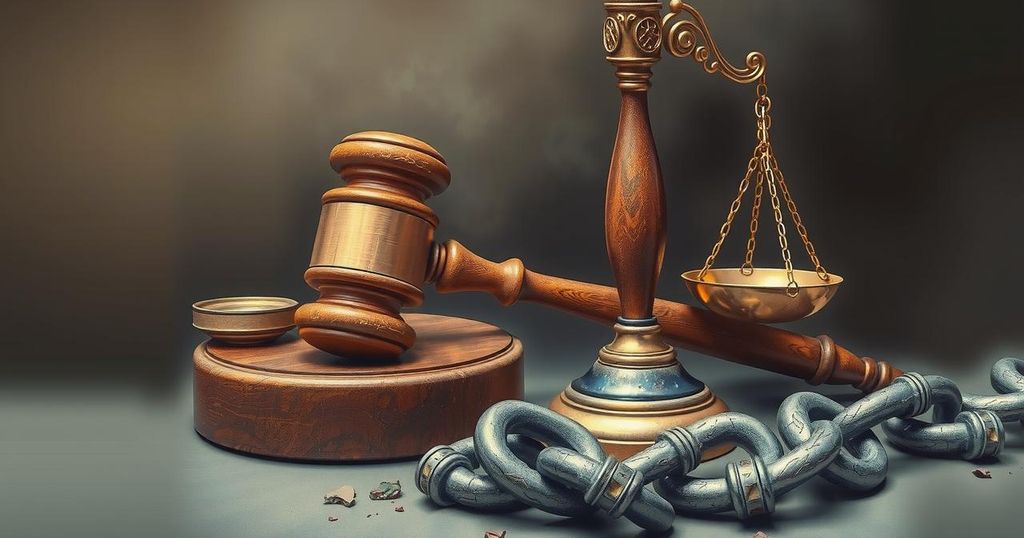Senator Natasha Akpoti-Uduaghan of Nigeria has been suspended for six months after alleging sexual harassment against Senate President Godswill Akpabio. The ethics committee recommended her suspension after dismissing her petition on procedural grounds. The case has sparked widespread discussion and protests, calling for a transparent investigation.
Nigerian Senator Natasha Akpoti-Uduaghan has been suspended for six months following her allegations of sexual harassment against the Senate President, Godswill Akpabio. Her petition was dismissed on procedural grounds, resulting in the ethics committee recommending her suspension for allegedly bringing ridicule to the legislative chamber. While some senators advocated for a reduced suspension period of three months, the majority voted to uphold the full recommendation.
The controversy surrounding Akpoti-Uduaghan’s claims has sparked significant discourse nationwide, amplified by her recent interview on Arise TV. Many notable individuals and organizations throughout Nigeria are now demanding a thorough investigation into the allegations made against Akpabio. In response to the unfolding situation, two groups of protesters convened at the Assembly in Abuja; one faction supported Akpabio, while the opposing group chanted for his resignation.
This incident underlines pressing issues of sexual harassment and accountability among political figures in Nigeria, reflecting ongoing societal struggles with these matters. The outcomes of the investigation and the public’s reaction could have lasting implications for both the individuals involved and the broader political landscape in Nigeria.
The suspension of Senator Natasha Akpoti-Uduaghan following her sexual harassment allegations against Senate President Godswill Akpabio emphasizes the serious nature of such claims within the political arena. While her suspension has been met with mixed reactions, it has ignited a nationwide dialogue on sexual misconduct and accountability. Ongoing protests and calls for investigation highlight the urgency and significance of this issue in Nigerian society.
Original Source: www.bbc.com




